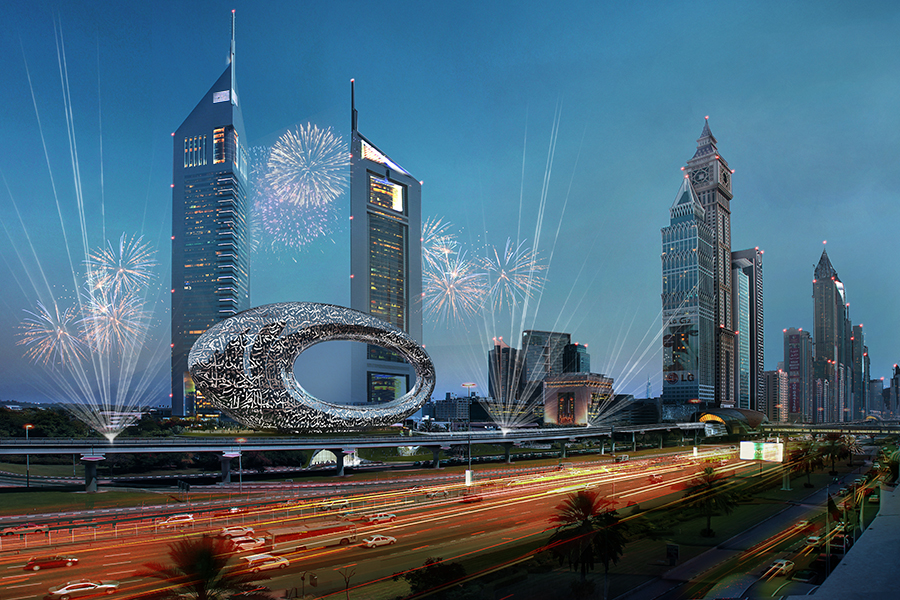
The Dubai Future Foundation was launched as a natural extension of Dubai’s vision of bringing the future forward. Launched in 2016 DFF plays a pivotal role in shaping the future of Dubai with the adoption of innovative technologies for the advancement of humanity. Through ideation, collaboration, prototyping and legislation, DFF partners with government and private sector entities to strengthen the skills of current and future generations, and implement strategies to propel Dubai into the future.
Buzz speaks to Khalfan Belhoul, DFF CEO about the farsighted vision, planning and risk taking approach of the foundation.
What is the mandate of the Dubai Future Foundation, and how are you working with other entities to support the Smart Dubai agenda?
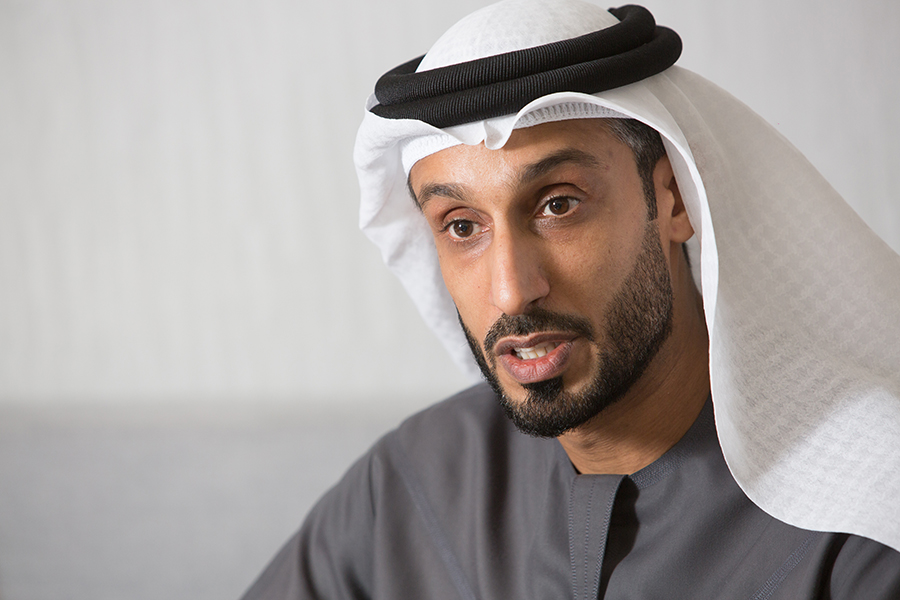
At the annual gathering of the World Government Summit about four years ago, a small team from the prime minister’s office decided to build a small exhibit area to show the delegates and visitors how Dubai is thinking about the future and talk about the challenges faced by humanity.
That exhibit was called the Small White Box. It talked about climate change, blockchain and other important topics. It was decided that the Small White Box was not enough, that we also needed an entity focused on shaping the future of Dubai and the improvement of humanity—and that led to the Dubai Future Foundation.
“Our value proposition in the Dubai Future Accelerators is that we link start-ups with government entities.” Khalfan Belhoul, Dubai Future Foundation, CEO
The board of trustees consists of leaders and decision makers, and we have embarked on about fifteen projects since the foundation was started three years ago. Our stakeholders span entrepreneurs, start-ups, government entities, academia/universities, large corporations, investors and venture capitalists.
You were appointed CEO recently, but you have been CEO of Dubai Future Accelerators. Can you talk us through this project?
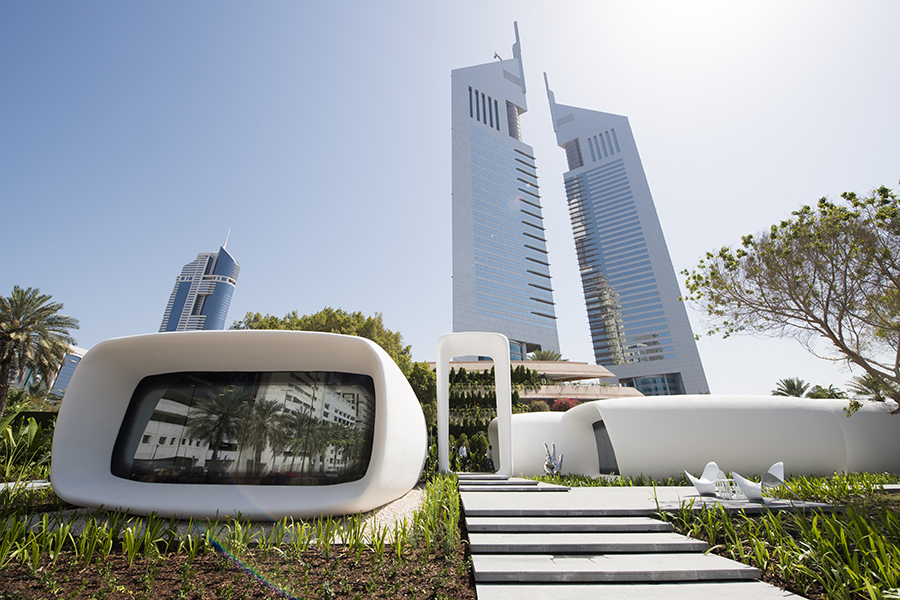
Our value proposition in the Dubai Future Accelerators is that we link start-ups with government entities. We have twelve government entities participating in the program and each launches a challenge statement at the beginning of every nine-week cohort program. The challenge is driven by acquiring start-ups that will solve a challenge within that entity.
For example, the transportation authority can ask for solutions related to autonomous mobility. Based on those challenges the program will reach out to start-ups around the globe to come up with solutions for that particular problem. At the end of the cohort, if the solution they develop is effective, they can sign a contract with the government entity to collaborate and do pilot testing.
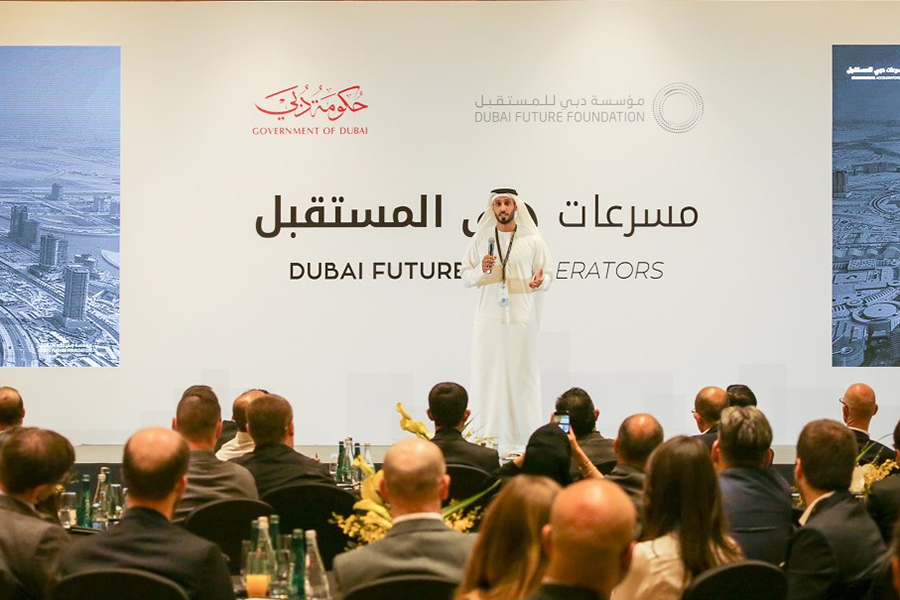
It shows our government entities are agile, inclusive and willing to work with start-ups. This attracts venture capitalists to also invest in the start-ups, because the government is working with them. We are in our sixth cohort now and more than 170 memorandums of understanding have been signed. We see tangible solutions being tested.
“We love things that are in test mode.
Our leader has an entrepreneurial mindset and that’s how Dubai has been built”
Khalfan Belhoul, Dubai Future Foundation, CEO
What was the concept behind the Museum of the Future?
It’s an experiential and educational space, and also a lab, where people of all ages can see the story of what the future holds. It takes visitors on a journey so that when they leave, they are educated about the future but they can also have input. What people may not realize is that museums invest in their assets because their assets appreciate as they age. That way, museums are able to keep adding to their collections.
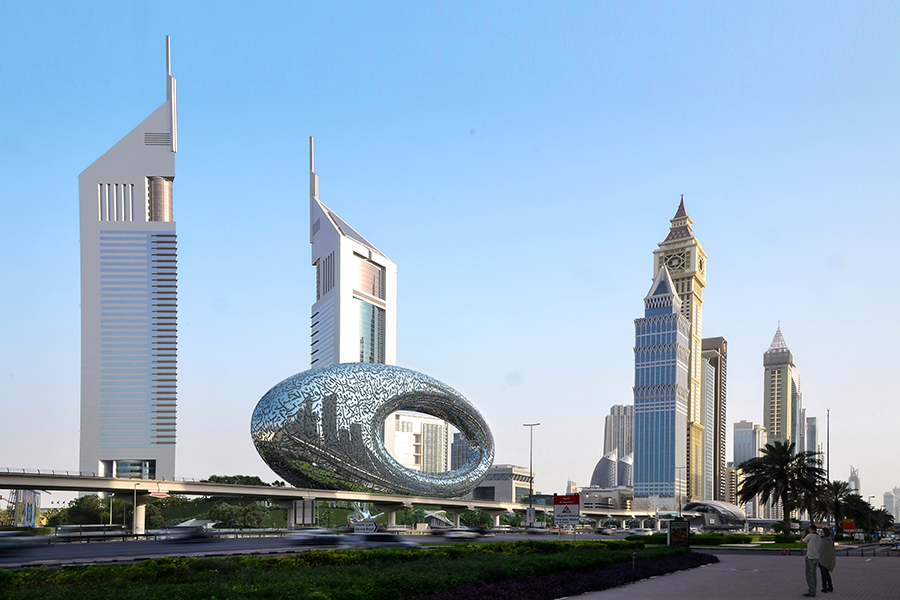
With the museum of the future, it’s the opposite story. You are showing the future, and that story becomes old news quickly. So we have to be smart in updating our content. Investing in technology and future solutions can be costly, but we must keep it relevant. You can’t go into a museum of the future and see something that is already on the market somewhere. It’s an interesting challenge, but we are building a system to answer the challenge.
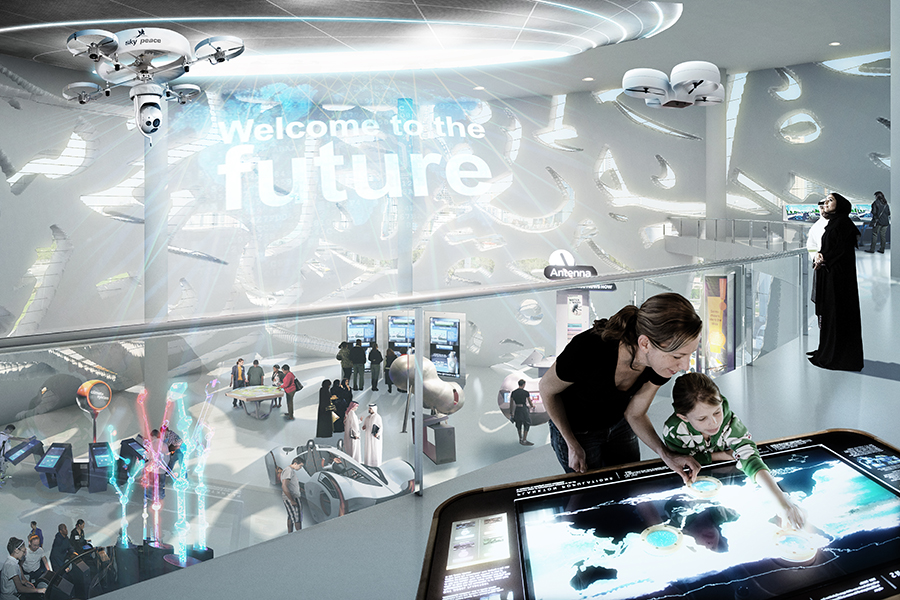
Regarding blockchain, Dubai has had many concrete implementation examples in place. How do you support blockchain?
Blockchain reminds me of the internet, in that we didn’t understand its possibilities at first, yet the impact was massive. But eventually we embraced it, and now we can’t live without it.
This is the magnitude of blockchain, but I don’t think we know yet what it will become or how we will implement it. For Dubai, the value is obvious, but we are still in a testing stage. And this is the mindset of the UAE: we love things that are in test mode. Our leader has an entrepreneurial mindset and that’s how Dubai has been built—with risk taking and making bold decisions. And blockchain is one of those bold decisions. We are testing it not just across government but across the private sector.

Our role is to create the easiest way for people to test blockchain. One way to do this was having 100 percent blockchain across government entities. We enabled start-ups to come within the blockchain future accelerators.
There is another project, the Regulations Lab or RegLab, overseen by the Dubai Future Foundation. The lab is specifically dedicated to providing regulations that favor innovation. Using blockchain as an example, if someone comes with a blockchain solution and we believe there are regulatory bottlenecks, the lab will create regulations to favor testing of the innovation. It will provide a temporary permit or regulation until the innovation is proven![]()









